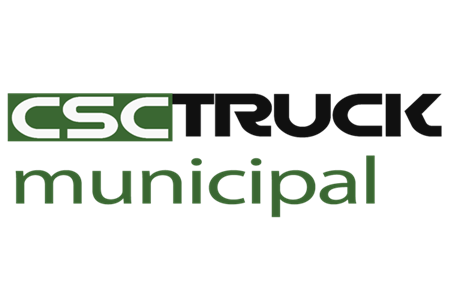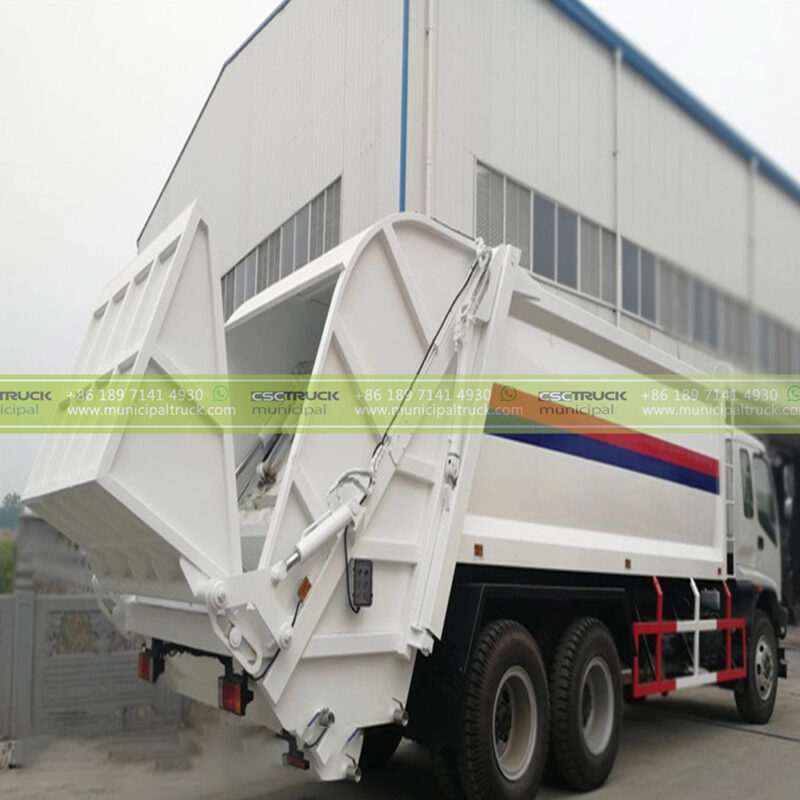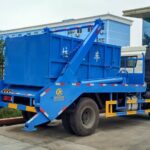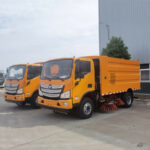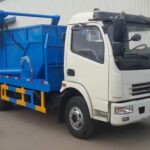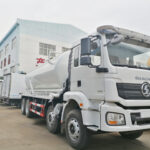Strategic Overhaul of High-Density Waste Management
As Accra confronts escalating urbanization pressures, the Greater Accra Regional Assembly has deployed 8 advanced compactor garbage trucks through a $3.8 million partnership between CSCTRUCK Municipal and Ghana Urban Services Consortium, the nation’s largest waste management operator. This intervention targets the city’s 17 most congested commercial corridors—including Oxford Street and Kaneshie Market—where daily waste generation exceeds 12 tons per kilometer, overwhelming existing collection systems. The fleet’s commissioning aligns with Ghana’s Clean Cities 2030 agenda, aiming to reduce landfill dependency by 45% through enhanced route efficiency.
The CSCTRUCK C-900H models, operational ahead of the September rainy season peak, address systemic bottlenecks in areas where narrow roads and 18-hour market activity previously restricted traditional rear loader garbage truck operations. Equipped with 25 m³ compaction chambers—triple the capacity of Accra’s legacy vehicles—these units can process 40–50 tons daily while navigating 4-meter-wide access lanes. “This isn’t just about waste collection; it’s about reclaiming public space from illegal dumping,” stated Regional Minister Elizabeth Sackey during the handover ceremony, noting projections of 70% faster route completion times and 24/7 odor containment through sealed compaction systems.
Engineering Solutions for Complex Urban Logistics
Intelligent Compaction Technology
Designed for Ghana’s unique mix of organic market waste and non-recyclable packaging, the trucks integrate three proprietary systems:
- Multi-stage compression chambers achieving 5:1 waste density ratios without manual pre-sorting
- IoT-enabled load sensors triggering automatic route optimization when compartments reach 85% capacity
- Biofilter ventilation neutralizing methane emissions during 14-hour operational cycles in tropical heat
This configuration enables continuous service across Accra’s 32 km² commercial hub, with hydraulic compactors exerting 12,000 kg force to process construction debris alongside domestic waste—a critical capability given the city’s 8% annual infrastructure growth rate. Durability testing confirms the units withstand Ghana’s corrosive coastal air, with zinc-nickel-coated chassis providing 50% greater corrosion resistance than previous municipal fleets.
Dynamic Route Intelligence
Synced with Accra’s Smart City Traffic Management Platform, the fleet utilizes machine learning algorithms that cross-reference historical waste patterns with real-time congestion data from 1,500 municipal cameras. “Our old trucks wasted 3 hours daily in traffic loops,” explained Waste Director Kwame Asare. “The new system identifies 500-meter service windows during market lulls, cutting fuel costs by 35% while minimizing pedestrian disruptions.” Drivers receive augmented reality visors highlighting priority bins and restricted zones near sensitive sites like Makola Market’s colonial-era structures.
Localized Capacity Building and Regional Waste Infrastructure Expansion
The CSCTRUCK-Ghana Urban Services partnership establishes West Africa’s first Municipal Vehicle Innovation Hub in Tema, featuring prototype workshops for future hook loader garbage truck variants and retrofitted rear loader garbage truck models tailored for Ghana’s secondary cities. Slated for 2026 production, these designs incorporate solar-assisted compactors and modular waste pods compatible with Accra’s new transfer stations—a hybrid approach blending imported precision engineering with locally fabricated steel bodies.
Key operational milestones already demonstrate systemic impact:
- Integrated transfer protocols: Sealed waste pods directly transferred to the Kpone Landfill’s new bioreactor cells
- Community engagement: Real-time collection alerts via the CleanAccra app reducing illegal dumping by 62% in pilot zones
- Cross-sector interoperability: Fire service access to compaction units for emergency debris clearance during floods
Ghana Urban Services CEO Ama Mensah highlighted the strategic vision: “By co-developing these platforms, we’re creating a blueprint for Kumasi and Tamale’s upcoming waste reforms.” With Phase 2 negotiations underway to expand the fleet for Ghana’s port cities—and interest expressed by Ivory Coast’s Abidjan authorities—Accra’s model of pairing global engineering expertise with hyperlocal operational intelligence is redefining urban sanitation across the Gulf of Guinea.
This initiative supports Ghana’s National Waste Policy 2024–2034, targeting 100% coverage of high-density urban routes. CSCTRUCK Municipal confirms similar compactor fleets will deploy in Lagos and Dakar by Q4 2025, adapted for West Africa’s coastal megacity challenges.
